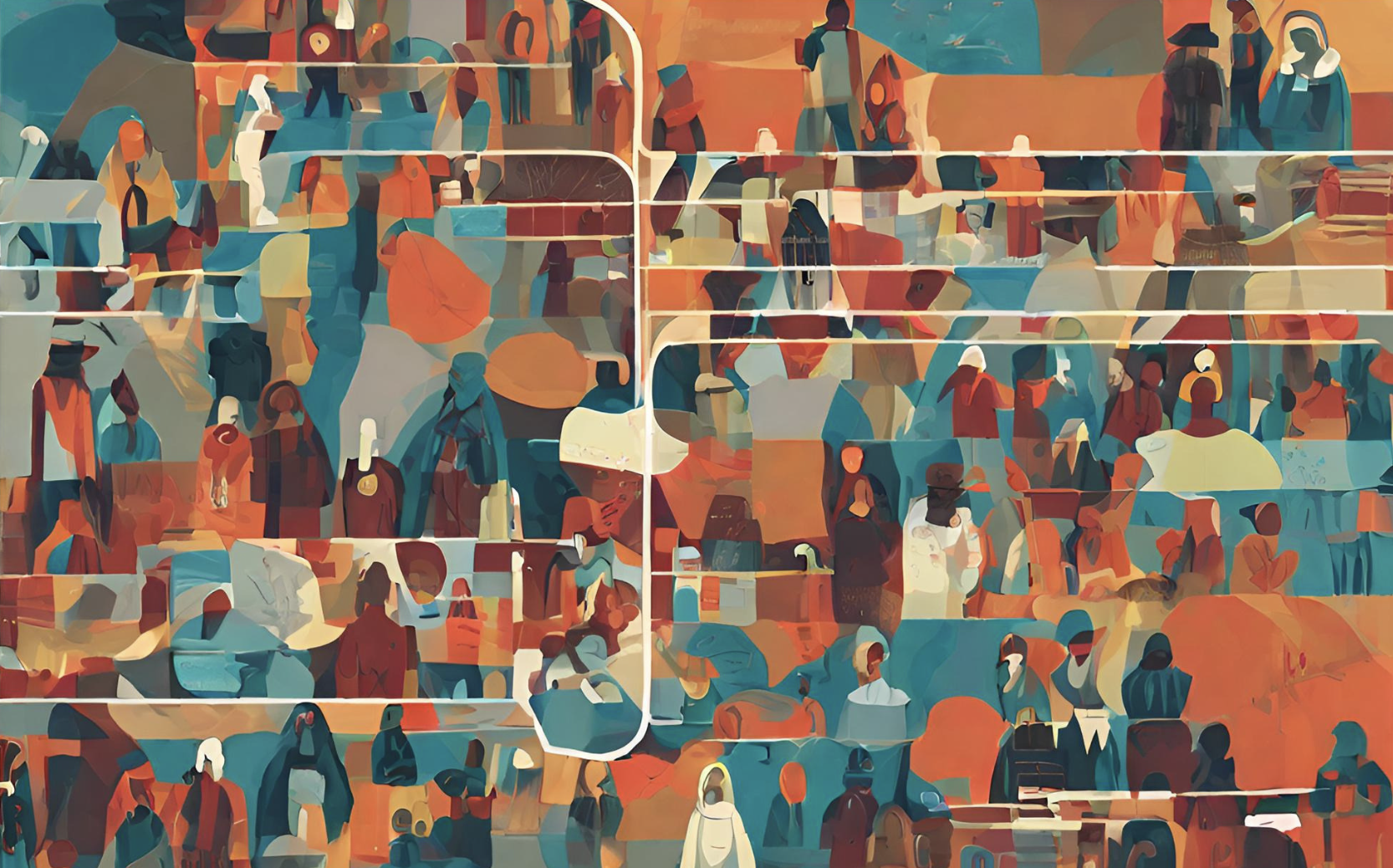
Legal actions against border violence targeting migrants before judicial, quasi-judicial and non-judicial bodies have increased significantly in recent years across the world. The increase in ‘strategic litigation’ has mirrored the expansion of, and developments in, states’ border control practices enacted outside of, as well as through, the law. Yet, justice struggles—in particular those situated within the “non-profit justice complex”—have often invisibilised, exceptionalised and irresponsibilised the structural and historical conditions at the root of intersecting forms of violence: in hyperlegalised bordering regimes, the “master’s tools” make only “narrow perimeters of change possible and allowable” (Lorde). In these conditions of im/possibility, legal interventions have often reproduced the “tangled and expansive web of relationships through which carceral logics and practices operate” (Massaro & Boyce).
This project’s first ideation—supported by a British Academy/Leverhulme Small Research Grant, Reclaiming the law: A global mapping of (strategic) litigation against border violence (SRG23\230576)—aims to map legal mobilisation, including ‘strategic litigation’, on the violence of borders through a pilot database of legal interventions at domestic, regional, and international levels. In this part of the project, we seek to evaluate the trajectories of cases, including their cross-fertilisation between different jurisdictional levels, to offer insights into the ways in which such interventions could reclaim law as a means of harm reduction.
Moving beyond the critique of law, this project centres transformative approaches to justice and accountability, as well as ‘movement law’, which is grounded in solidarity and engagement with social movements as methods (Akbar, Ashar & Simonson). By engaging in a self-reflexive community-based inquiry, centring relational and transformative justice—‘no justice, just us’—as part of an affective politics of rehearsal of freedoms (Gilmore), the project hopes to prefigure new ways and approaches of resisting the im/possibilities and violences of laws and legal processes in the here and now and to nurture everyday debordering praxes.
project
Critical border studies scholars have highlighted how “borders have a deep connection with violent and conflictual phenomena that is historical, structural, and etymological” (Brambilla & Jones; Walia; Korf & Raeymaekers; Springer & Le Billon; Nail). Borders can be seen to mirror the ‘topo-logic’ functioning of a particular geopolitical order grounded in territorialism. Yet, borders have also been seen as sites of struggle (Walker; Brambilla & Jones), loci of possibilities (Vaughan-Williams). Building on Brambilla and Jones’ articulation of a ‘horizon of hope’ and Kaba’s ‘hope as a discipline’ for an applied, committed, and engaged research in critical border studies (Brambilla & Jones), legal struggles against the laws of borders are sites of multiple struggles for reducing harm, exposing the violences of law, and (re)claiming and reimagining understandings and practices of justice and accountability.
Giving form to these articulations, different legal interventions have sought to both reduce and prevent further harm, while also resisting the violence of hyperlegality as lawlessness through judicial, quasi-judicial, and administrative means. In the early 2010s, for example, the judgement of the European Court of Human Rights in Hirsi Jamaa and Ors v Italy (2012) was seen as having established a ‘protective precedent’ against refoulement and border violence. In 2018, a preliminary injunction issued by a federal judge called for the immediate reunification of families separated by Trump’s so-called ‘Zero Tolerance Policy’ (see Ms. L. v ICE, 310 F. Supp. 3d 1133, 1149 (S.D. Cal. 2018)). In 2019, the Tribunal of Rome’s judgement No 22917 (2019) recognised the constitutional right to seek asylum, based on a tort claim for extra-contractual damages, and granted a group of asylum-seekers, who had been ‘pushed back’ by the Italian Navy in the Central Mediterranean, access to Italian territory to seek international protection.
A novelty of certain interventions has been to mobilise legal arguments beyond conventional approaches to contestation and remediation of state violence based on human rights law. In 2011, for example, the detention and transfer of migrants involving family separations in Uruguay was litigated before the Inter-American Court of Human Rights, which found the practice to constitute a form of enforced disappearance (see Gelman v Uruguay, Merits, Reparations, and Cost, Judgment, IACtHR Ser C No 221 (24 February 2011)). This argument was, more recently, brought before the United Nations Human Rights Committee in relation to border violence in the European context, in the case of F.A.A. v Greece (CCPR Case 4038-2021; pending). Another instance of creative legal formalism is the mobilisation of financial management laws to frame ‘misuse’ of funds in support of breaches of EU law and fundamental rights, pursued before the European Court of Auditors in relation to the EU Trust Fund for Africa’s ‘Support to Integrated Border and Migration Management in Libya’ programme (see financialised migration control).
Such interventions exist within the narrow confines of judicial accountability processes for bordering regimes have made mainly neoliberal, individualist and incrementalist forms of justice achievable. Such processes invisibilise, exceptionalise and irresponsibilise the structural and historical conditions at the root of intersecting forms of violence. The project seeks to contribute to the efforts to (re)orient the legal struggles of no-borders activist and research communities in struggle towards new no-border horizons and debordering praxes, including amongst themselves, by cocreating and holding spaces for envisioning intersectional, decolonial, and (trans)feminist approaches to justice and accountability.
research
We are in the process of organising a series of workshops, that will take place throughout the second half of 2024, to convene in different formats and constellations, legal practitioners, organisations, and community-based activists involved in legal interventions from the African continent, the Americas and European countries, broadly defined, to discuss the limits and im/possibilities of pursuing legal accountability for borders and their violences.
If you are interested in discussing or joining the project, please get in touch with us: n.magugliani@debordercollective.org and v.azarova@debordercollective.org
Noemi Magugliani
Valentina Azarova
Last updated
May 2024
